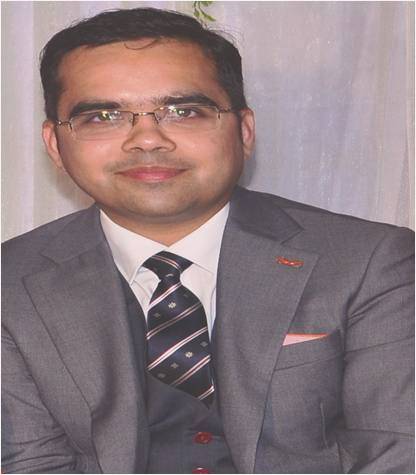Fish and Shellfish Health Management
Course Attendees
Still no participant
Course Reviews
Still no reviews
Course Name : Fish and Shellfish Health Management
Code(Credit) : CUTM1445(3-1-0)
Course Objectives
• To provide holistic knowledge on fish and shellfish pathogens and their control measures.
• To undertake surveillance of existing and emerging fish and shellfish diseases.
• To develop improved diagnostic techniques for the detection of existing and emerging fish and shellfish diseases.
• To develop prophylactic and therapeutic measures including herbal remedies with nutraceutical and immunostimulant formulations for the control of fish and shellfish diseases and study the pharmacodynamics and pharmacokinetics of select formulations.
Course Outcome
| COs | Course Outcome | Mapping COs with POs
(High-3, Medium-2, Low-1) |
| CO1 | Students will gain knowledge about different types of fish pathogen and their treatments.
|
PO1-3, PO7-3, PO9-2 |
| CO2 | To understand the various systems of fishes and shrimps with specific reference to their pathological significance. | PO1-3, PO4-2, PO9-1 |
Course Syllabus
Module I
Significance of fin Fish and Shellfish diseases in aquaculture, stress in aquaculture and its role in disease development, pathological processes: cellular response to injury, inflammatory response to diseases, pathogencity mechanism of parasite and bacteria, pathogencity mechanism of virus and fungus.
Practice
Examination of normal and diseased fish - thorough examination of external surface.
Module II
OIE listed diseases, disease surveillance and reporting, quarantine and health certification in aquaculture, health management strategies in aquaculture, good and best management practices.
Practice
Autopsy of the diseased fish.
Module III
Disease control through environmental management, sanitary and phytosanitary agreement, vaccines used in aquaculture, immuno-stimulants used in aquaculture.
Module IV
Bioremediation, viral diseases of fish, viral diseases of shellfish, bacterial diseases of fish, bacterial diseases in shellfish.
Practice
Histopathology of organs of diseased fish (sectioning – staining and mounting).
Module V
Fungal diseases of fish, fungal diseases of shell fish, protozoan diseases in fish, protozoan diseases in shellfish.
Practice
Slide preparation of fish parasites (Protozoan – Helminth and Copepod).
Module VI
Metazoan parasites of fish, metazoan parasites in shell fish, crustacean parasites of fish, environmental induced diseases of fish, nutrition deficiency diseases.
Practice
Collection of ecto parasites and its preservation
Module VII
Diseases caused by other factors: hereditary factors, tumours of hereditary origin, hydrocoel, tumours, benign and malignant, SPF and its importance, SPR and its importance, quarantine methods and its importance.<br /
Practice
Extraction of DNA from the fish fins.
Reference and Textbooks:
Fish Pathology. Author: Ronald J. Roberts.
Prevention and control of fish and prawn diseases. Author: KP Biswas.
Session Plan
Session 1
Significance of fin fish and shellfish diseases in aquaculture
Session 2
Stress in aquaculture and its role in disease development
Session 3
Pathological processes: Cellular response to injury, Inflammatory response to diseases
Session 4
Pathogencity mechanism of parasite and bacteria
Session 5
Pathogencity mechanism of virus and fungus
Session 6
Practice 1: Examination of normal and diseased fish - thorough examination of external surface. (2h)
Session 7
Office International des Epizooties (OIE) listed diseases
Session 8
Disease surveillance and reporting
Session 9
Quarantine and health certification in aquaculture
Session 10
Health management strategies in aquaculture
Session 11
Management practices
Session 12
Disease control through environmental management
Session 13
Practice 2: Autopsy of the diseased fish. (2h)
Session 14
Sanitary and phytosanitary agreement
Session 15
Vaccines used in aquaculture
Session 16
Immuno-stimulants used in aquaculture
Session 17
Bioremediation
Session 18
Practice 3: Histopathology of organs of diseased fish (Sectioning – Staining and Mounting). (2h)
Session 19
Viral diseases of shellfish
Session 20
Viral diseases of fish
Session 21
Bacterial diseases of fish
Session 22
Bacterial diseases in shellfish
Session 23
Fungal diseases of fish
Session 24
Practice 4: Slides preparation of fish parasites (Protozoan – Helminth and Copepod). (2h)
Session 25
Fungal diseases of shell fish
Session 26
Protozoan diseases in fish
Session 27
Protozoan diseases in shellfish
Session 28
Metazoan parasites of fish
Session 29
Crustacean parasites of fish
Session 30
Practice 5: Collection of ecto-parasites and its preservation. (2h)
Session 31
Environmental induced diseases of fish
Session 32
Nutrition deficiency diseases
Session 33
Diseases caused by other factors like hereditary factors, tumours of
hereditary origin
Session 34
Importance of specific pathogen free and specific pathogen resistant species>
Session 35
Quarantine Methods and its importance
Session 36
Practice 6: Extraction of DNA from the fish fins. (2h)
Our Main Teachers

Associate Professor, Department of Zoology (School of Applied Sciences) CUTM – Bhubaneswar Dr. Yashaswi Nayak presently serving in Centurion University of Technology and Management as faculty and Head of the Department of Zoology has around sixteen years of teaching experience and possess specialization in Poultry management , vermicomposting processes. Her area of interest is Fishery […]

